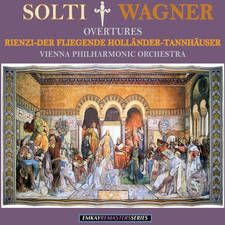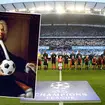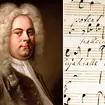Handel - Messiah
The love affair that British classical music audiences have with this oratorio is quite phenomenal. Since its Dublin premiere in 1742, it has been performed by choirs across the land every year since at least 1745.
Handel composed his most famous piece in 1741, and continued to work on it after its initial performance, finally arriving at the version we know today in 1754. Impressive solo arias, like 'Ev'ry valley shall be exalted' and 'Rejoice greatly, O daughter of Zion' are interspersed with compelling chorus numbers, telling the story of Jesus' birth, life, death, resurrection, and final victory over sin and death.
During Victorian times, there was a phase when Messiah was performed by ever expanding musical forces – there almost seemed to be a competition to see just how big a chorus and orchestra could be crammed onto one stage before they fell through. Earlier, Mozart even got in on the act, with his own arrangement of Messiah, which was not, it has to be said, to everyone’s taste. One critic remarked that it ‘resembles elegant stucco work upon an old marble temple ... easily ... chipped off again by the weather’.
Hallelujah Chorus
The rousing 'Hallelujah' Chorus is one of the most famous pieces of Baroque choral music, and by far the most widely-known section of the work. Audiences tend to stand during performances – a tradition that allegedly began when King George II stood up during the chorus at the oratorio’s debut London performance.
The forgotten man behind the success of Messiah is the librettist, Charles Jennens, who adapted the words of the King James Bible, which Handel set to music. Handel's approach to setting the text is, at times, amusing – in the chorus 'All we like sheep have gone astray', the mood changes in the middle of the sentence, resulting in a rousing choir declaring their fondness for the wooly animal. Joking aside, Handel's ability to capture the mood – from passionate rage to serene pastoral moments – is what makes this one of the most enduring choral works of all time.












